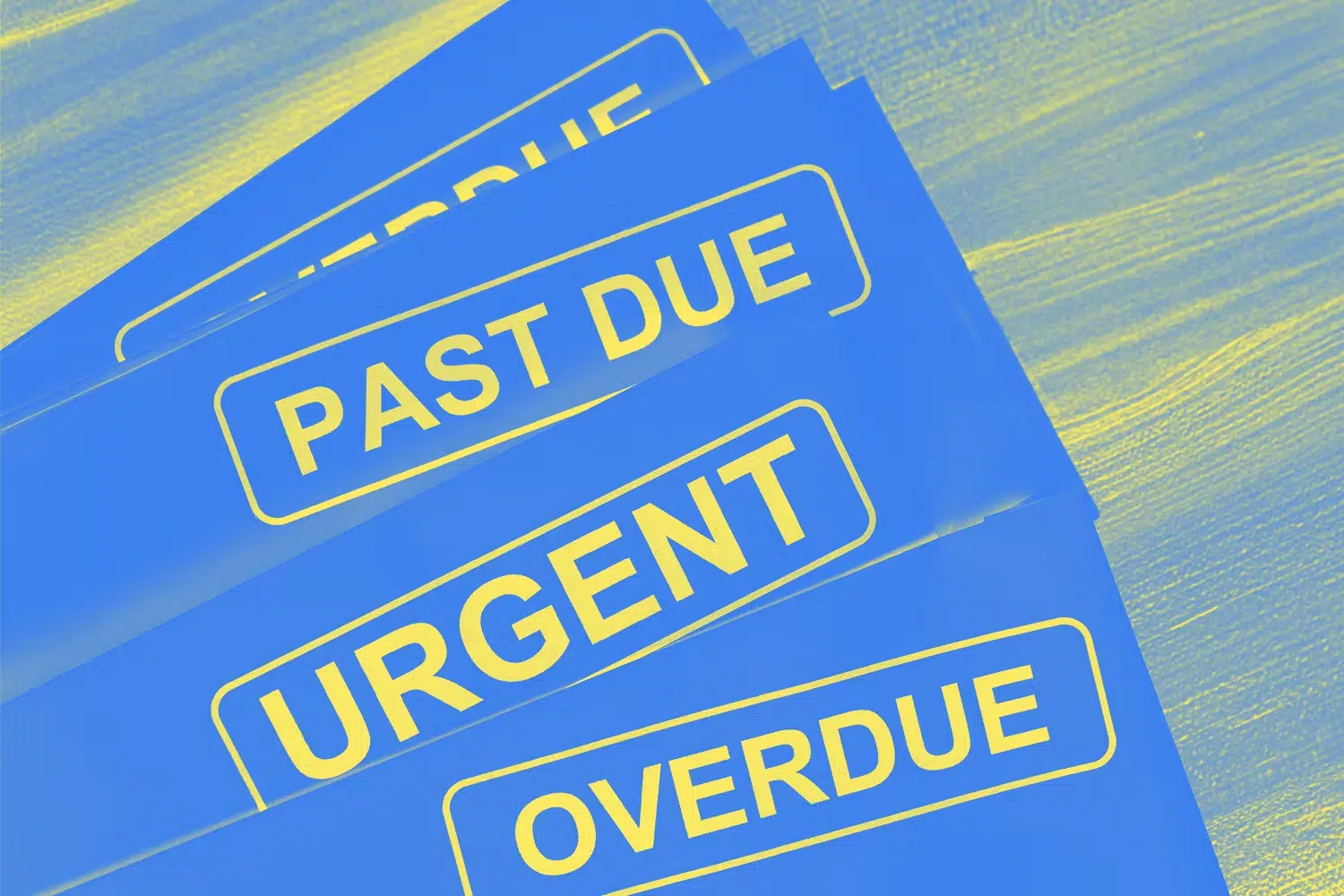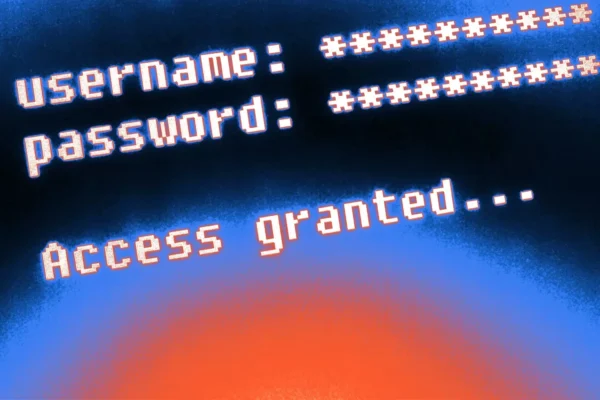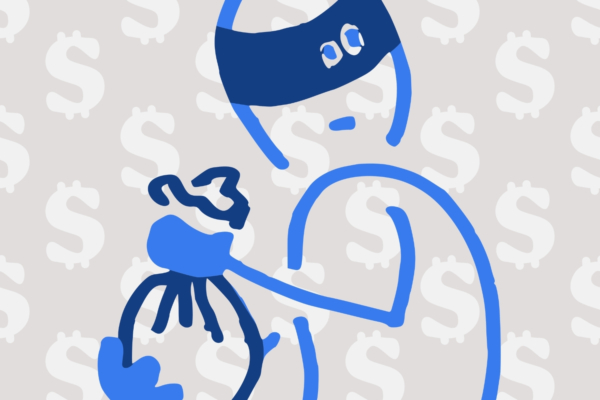
Fake Debt Collectors Exist–Here’s How to Handle Them

Imagine a call that goes something like this: “Remember that balance you owe on that thing you bought a while ago? You need to pay in full today.”
You don’t remember? Well, the man on the phone is pretty adamant about it, and he wants you to get this settled ASAP. He sounds pretty convincing, and you’re beginning to feel uncomfortable—maybe you should get this taken care of right away.
If you’ve found yourself in a similar situation, you might have experienced a popular type of scam on the rise: fake debt collectors.
What are fake debt collectors?
A fake debt collector scam occurs when someone contacts you pretending to be a debt collection agency or bill collector and attempts to collect on an alleged debt that you owe. These scams are typically done via phone call or email but can also happen through text messaging or by mail.
Debt collector scams can be convincing, leaving you wondering if you actually have a long-lost debt that you forgot to follow up on. The scammers may also resort to threats or intimidation tactics in order to get you to pay the debt they claim you owe.
Wanting to make things right or avoid consequences of unpaid debts, unsuspecting victims will write a check or hand over their financial information— leaving them vulnerable to fraud and identity theft.
Are all debt collectors scams?
No, not all debt collectors are scams. There are some legitimate companies out there who work with consumers on behalf of creditors. However, just because someone claims they are working for a legitimate company doesn’t mean that the debt they are trying to collect is real or due from you.
It’s important to do your own research before sending any money or revealing any personal information about yourself.
Signs of a Scam
So how can you weed out a fake debt collector from a real one? Here are some signs that a debt collector is fake.
- They ask for information that they should already have. Real debt collectors should have info like your full name, address, birthday, and Social Security Number on file.
- They threaten you or insist you pay right away. Real debt collectors may seem pushy, but scammers resort to more extreme tactics like intimidation and threats.
- They want you to pay through untraceable means. Scammers don’t want to get caught, so they’ll insist you pay through means like wire transfer or gift cards.
- Their information is unverifiable. If they refuse to give info about themselves or you can’t seem to find a trace of the debt collection agency anywhere, it’s a good sign it’s a scam.
Even if you do owe money, debt collectors still must abide by collection laws. For more information on what a debt collector can and cannot do, read this article from the Texas Attorney General’s office.
Debt Collectors vs. Debt Buyers
Debt collectors are hired by creditors to collect unpaid monies. In some cases, a creditor may sell their debts to debt buyers in bulk— often for pennies on the dollar. If your debt has been sold, you now owe the debt to the debt buyer instead of the original creditor.
It’s still important to always verify the debt before making any payments. However, when working with a debt buyer, you may have more negotiating power. Because the debt has been purchased for so little, you may be able to pay less than the original debt amount to close the debt.
Know What You Don’t Have to Pay
If you get a call from a debt collector, understanding your legal obligations can help you determine whether you are actually responsible for an unpaid debt.
It’s important to keep in mind that you are not liable for debts that fall under the following categories:
1. Debt that never existed
If the debt collector is a scam and the debt is just made up, it should go without saying: you do not have to pay it.
2. Debt that has already been paid off
Some debt collectors may try to collect on a bill that has already been paid. It could be that they have faulty information or they know you’ve paid and are just trying to get you to do so again.
3. Old debt
It’s possible that, at one time, you did owe some money on this account, but the statute of limitations ran out on it many years ago. This is part of the “zombie debt” school of collection in which specialized companies go after consumers for ancient debts that consumers are no longer legally required to pay.
4. Debt that cannot be proven
If, when pressed for verification of the debt’s origin and history, the collector cannot provide it, the debt is likely phony or incorrect. Legitimate debt collectors will be able to provide more information to verify your identity and the legitimacy of the debt.
If they cannot, it’s possible the debt never existed in the first place or the information is really only just your name with an amount next to it.
5. Debt that was wiped clean by a bankruptcy
Some collectors may demand payment for debts that were legally discharged through bankruptcy.
6. Medical debt collections that goes against new laws
Debt collectors must abide by laws when collecting debt— especially when it comes to medical debt.
Laws are changing around medical debt and how it is collected. Keep in mind that debt collectors are not allowed to report a medical bill to the credit reporting companies without first trying to collect the debt from you. Additionally, medical debt that has already been paid can no longer appear on credit reports.
The Consumer Financial Protection Bureau tells consumers to avoid paying a person or a service who promises to keep medical bills off your credit report or to protect you from unexpected out-of-network medical costs.
How to Handle Debt Collectors
If you’re contacted by a debt collector (real or otherwise), take the following steps to protect your identity and financial security.
1. Request proof in writing.
One of the reasons scammers operate via telephone and on the internet is that, if ever caught, they can at least avoid mail fraud charges. Therefore, if you ask them to send you written documentation of your debt, they might protest that it’s out of the question or they’ll give up harassing you.
The FTC suggests you ask for a written “validation notice” which details the exact amount you owe, the name of the creditor, the nature of the charges, and what your rights are under the Fair Debt Collection Practices Act.
Ask the caller for their particulars as well: name, company’s name and street address, and a phone number where they can be reached. Check them out with an internet search. A real company will have a substantial internet footprint.
2. Don’t give your information until you’ve verified their info.
Do not give them any financial or personal information. If you start feeding them personal data, such as bank account info or your SSN, they can use it to commit identity theft, which would probably be far more lucrative for them.
3. End the call.
Once you have gotten the information on the caller— or they have refused to give it to you— get off the phone. Mail them a letter stating they must cease and desist calling you. That’s your right by law and a real debt collector has to follow that law if you request it in writing. If they keep calling in spite of that, you’ll have even further proof they’re not on the up and up.
4. Check with the creditor.
If they mention a creditor by name, it doesn’t necessarily mean they represent that creditor on a legitimate basis. If you think you might owe money to that creditor:
- Find a legitimate number for the debt collector through a verified website– never use the number the caller gives you.
- Contact the debt collector and ask them if this caller is an appointed representative of their company and if they can verify your debt.
This is another strong argument for making periodic checks of your credit report. If the alleged debt exists, it should show up on your report.
5. If it is fraudulent, report them.
The FTC wants you to contact them to report any such suspicious calls. They also recommend that you contact your state’s Attorney General as well.
Protect Yourself from Fake Debt Collectors
Debt collector scams are becoming more and more common as scammers look for new ways to gain access to personal financial information. While there are some legitimate companies out there providing services on behalf of creditors, it’s important not to blindly trust anyone who contacts claiming that they need payment for a supposed “debt” without first verifying their legitimacy.
By taking simple precautions like asking for written proof before handing over any money, you can help protect yourself from becoming a victim of one of these growing scams.
Become an Amplify Member
Every Amplify account holder enjoys fee-free banking. That means no overdraft, maintenance, or other banking fees cutting into your pocket.


